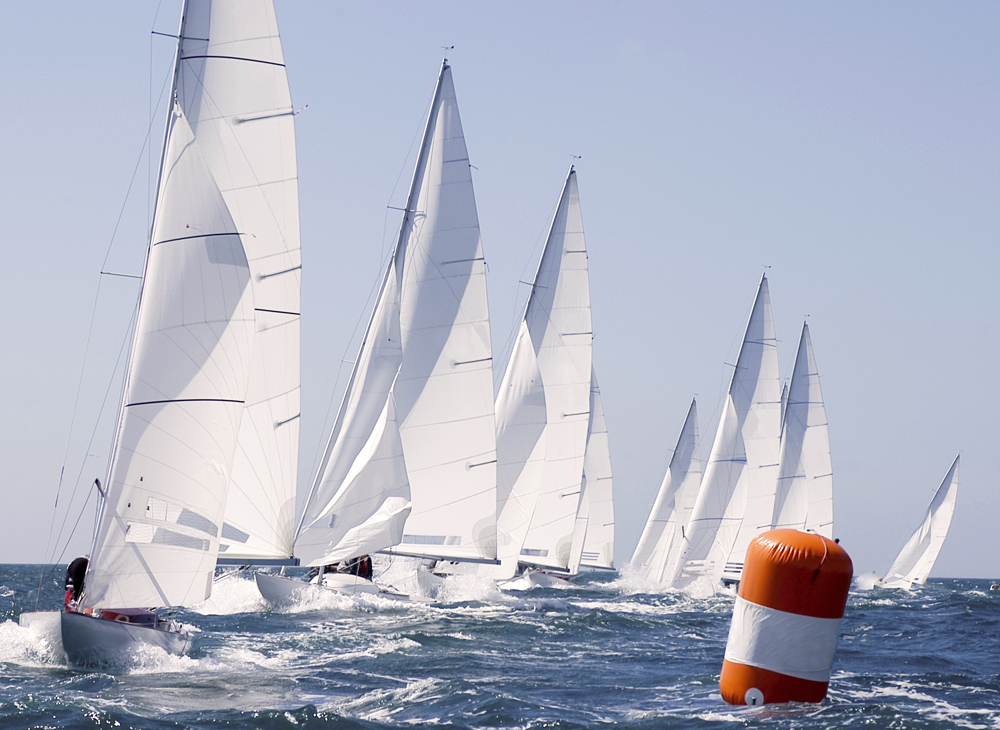Ever since 1775, regattas have been an organized competition for sailors to participate in. Each regatta consists of more than one race. Regattas normally consist of one type of boat. Participants can be of all age and skill, but most regattas are comprized of amateurs. There is often social activities surrounding the race.
There are four basic rules to sailing racing. They can be remembered by the acronym "SLOP":
- S- Starboard over port
- L- Leeward over windward
- O- Overtaking gives way
- P- Power gives way
Boats on a port tack (turning so left side of the boat ia closest to direction of wind) are required to stay clear of boats on a starboard tack (turning so the right side is closest to the direction of the wind). Leeward boats are the boats further from the direction of the wind. Windward is the boat closest to the wind, and windward boats must give right of way to leeward boats. When boats are not overlapped and going the same direction, the overtaking, or faster boat, must avoid the slower boat to avoid penalty. Faster or motorized boats must be careful to avoid non-motorized or less powerful boats.
There are multiple, more general limitations that should be observed. First, a boat with right-of-way should avoid a collision at all costs, even if the other boat is not. Once getting right-of-way, you have to give the other boat the chance to clear out of the way, unless the other boat caused you to get right-of-way. When changing course, you have to give the other boat space even if you have right of way. When passing another boat leeward, you cannot change course.
Signals that are to be read by sailors are usually given in the form of code flags.

Some of the uses for code flags include signalling how long until the race starts, recall signals, course change signals, abandonment signals, postponement signals, and other directional signals.
